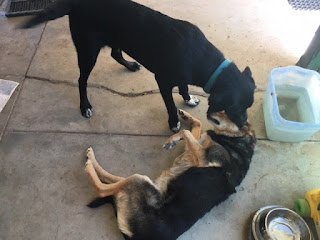There were a few things I learned/were reiterated from this book:
- A child's primary love language often changes. At the moment, I think Rory's receiving love language is quality time and Flynn's is physical touch.
- If their behaviour is not great, it is often because their emotional needs through their love language are not being met. We need to fill their 'emotional tanks' with love.
- Using someone else's love language might not come naturally to us (because we have a different love language), but we need to persevere.
- If you aren't sure of your child's love language, you should observe them carefully and ask them questions which may show which way they're wired. For example, for a five-year-old (Rory's age), I might ask, "Would you like for me to bake you an apple pie (acts of service) or for us to take a walk in the park (quality time)?" "Would you rather wrestle (physical touch) or read a story together (quality time)?" "While I am out of town for two days, would you rather I bring you a present (gift) or write you a poem about what a wonderful boy you are (words of affirmation)?" (pages 111-12)
- When you keep your child's love tank full with unconditional love, you will be able to discipline them with the best results. For example, if a child's love language is quality time, punishing them by isolating them may crush their sense of being loved.



























